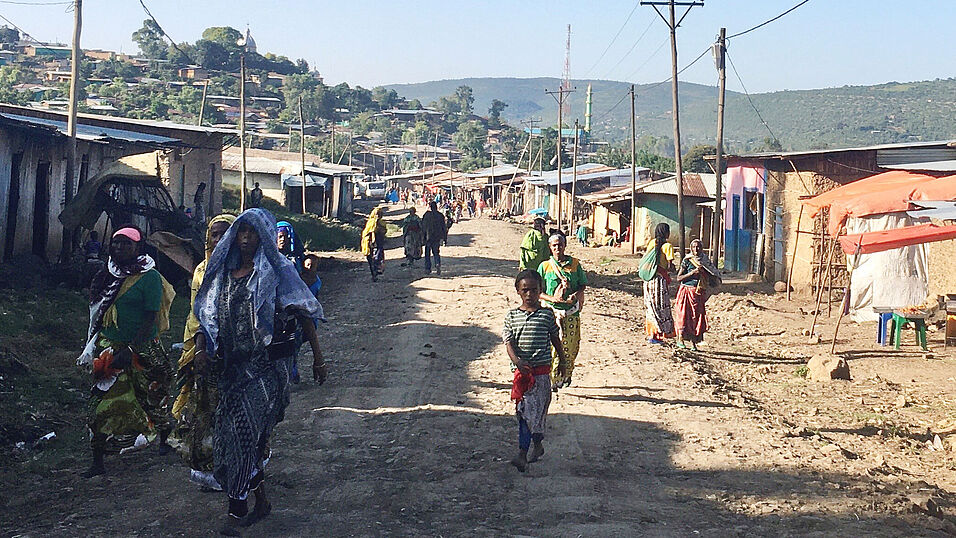From May to August 2020, two bachelor students, Ariane Padonou and Romain Balthazard from Aix Marseille University (AMU) completed a distance learning internship at the Department of Geography and Regional Research of the University of Vienna, in the Research Group "Population, Environment, and Development". Under the supervision of Laurence Reboul, Associate Professor in Mathematics at AMU and Marion Borderon, Assistant Professor in Geography at UNIVIE, they worked on the dynamics of migration in Kersa, a rural area in Eastern Ethiopia.
It is within the framework of a recently established academic collaboration agreement between the University of Haramaya in Ethiopia and the University of Vienna in Austria that a project has started on the analysis of the migration data from the Health and Demographic Surveillance Site (HDSS) of Kersa in order to improve our understanding of the mobility patterns of disadvantaged rural populations in rural Ethiopia. The data center has been recording data on individuals and their households since 2007.
- How could we better understand the combinations of factors that lead people to leave or stay?
- Are there recurring factors that trigger or prevent migration, are there biographical events that accelerate or delay departure? What is the role of poverty in all this?
- What kind of poverty are we talking about?
These are the questions that Ariane and Romain asked themselves throughout the internship. Using disaggregated data from the Kersa HDSS database and working with R, the two students shared the tasks: Romain worked on longitudinal data to characterize the migration patterns of the 148,000 individuals registered in the database according to their gender, age, occupation, education, district of origin, migration decision, etc., while Ariane set about constructing a multidimensional poverty index to characterize the situation of the 24,000 households. Every week between May and August, Romain, Ariane and their supervisor met on the Discord platform for a virtual meeting. The use of open source software, the regular contact between the students and their internship supervisors and the motivation of the students obviously paid off. On September 15, 2020, the two students presented their internship report and successfully completed their Bachelor's degree with honors. This combination of disciplines, from mathematics to social sciences, was also recognized as a superb experience for both supervisors and students.
Ariane says "these three months of internship allowed me to put into practice in a concrete and precise way the knowledge I acquired during my bachelor's degree. More specifically, with respect to the R software, the research objectives I had to fulfill led me to discover and acquire new notions. I also had to develop new skills in data mining and manipulation, and this experience allowed me to evaluate my ability to achieve the objectives set over time.".
For Romain, the internship was also a great opportunity to develop his knowledge in statistics and data analysis. Dealing with a database of more than a million lines can make the job a little more complicated! You have to optimize the execution of the tasks in order not to lose too much time. From this professional,

